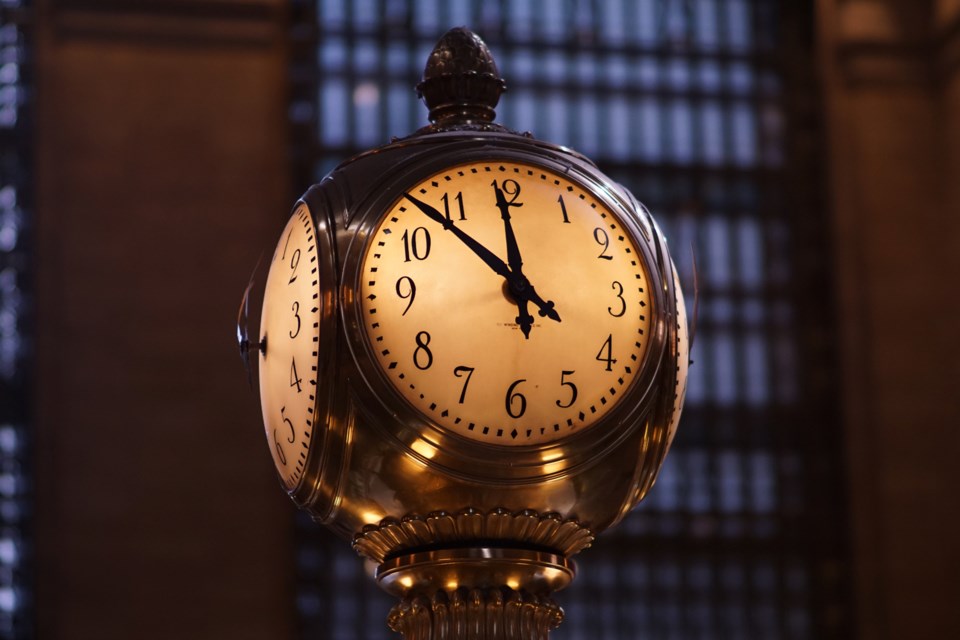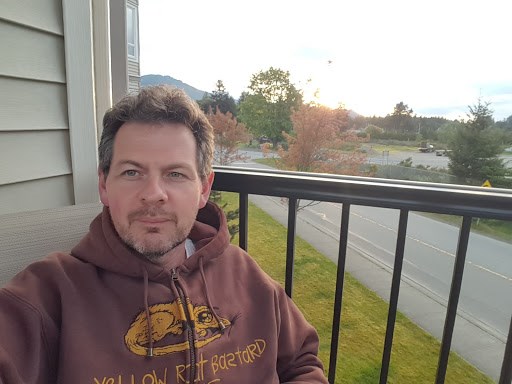 I know I’m not the only one who sits and wonders about time. I don’t mean deep musings about the nature of time and space (except when I am watching Doctor Who) or the physics of time, like the late Stephen Hawkins, nor even the philosophy of time – I mean those everyday questions about time such as, “Why does it take so long for the clock to get to lunchtime, and then moments for my break to end?” Or, “Where has the time gone this afternoon, there was so much I was going to do?” Or even, “Will this sermon ever end?”��
I know I’m not the only one who sits and wonders about time. I don’t mean deep musings about the nature of time and space (except when I am watching Doctor Who) or the physics of time, like the late Stephen Hawkins, nor even the philosophy of time – I mean those everyday questions about time such as, “Why does it take so long for the clock to get to lunchtime, and then moments for my break to end?” Or, “Where has the time gone this afternoon, there was so much I was going to do?” Or even, “Will this sermon ever end?”��
And at present many of us seem to have nothing but time. We’ve been freed up from rushing around from meeting to meeting, visit to visit, errand to errand. We are not travelling; we can’t use or lose our time in the same way. We have all the time we need, kind of.
So what are we doing with our time? Are we cursing the surfeit of it, complaining we’re bored and don’t know what to do? Are we lamenting what we can’t do with our time? Are we setting out on some great journey of self-improvement; learning to paint or draw or dance or do yoga, or whatever? Are we enjoying space to read, listen to music or audiobooks, watch the movies we’ve been saving on the PVR for months, binge watch Tiger King?
Perhaps we’re busy doing nothing. Making a point of not filling our days with trivia, or watching too much news, or trying to unplug from all those things that usually distract and frustrate and divert us.
There’s no shortage of online pundits telling us what we��should��be doing – learning more, being active, finding ways to be productive – it seems that unless we are ‘doing’ things we are, in some way, ‘wasting’ time. That seems to be a very common theme in our society, that unless we spend our time ‘doing’, unless we have paid employment, unless we are perceived to be ‘successful’, then somehow we have less value, we are wasted, we are of less worth.
In the Christian tradition no one is worth less because of what they do, or don’t, do for a living. No one is of lower value because they are poor or less educated than another. No one is considered worthless because of how they look, or what colour their skin is, or how smart they are, or because of who they love.����Sure, there are Christians who use the stories and myths of Christianity to justify racism, homophobia, intolerance, selfishness and their own prejudices – but at the heart of the scripture and tradition of Christianity, and indeed of the Jewish roots of the Christian faith, is a profound understanding that God loves us. In fact, the defining aspect of God’s nature is love – as the Christian Scripture says ‘God is love,’ not that God loves, or is loving, but that God’s very being is made of love.
And this is how God relates to human beings – we see again and again statements of God’s love for us. In the Hebrew Bible (the Jewish Scriptures) Israel is understood to represent all of humanity, and to have the responsibility for sharing the message of faith with all people, and the 31st��Chapter of Jeremiah, one of the prophets of Israel, says clearly to Israel, speaking on behalf of God “I have loved you with an everlasting love;��therefore��I have continued��my faithfulness to you,” – even the somber and painful book of ‘Lamentations” has the reminder, “The steadfast love of the Lord never ceases, God’s mercies never come to an end, they are new every morning – great is God’s faithfulness.”
In the Christian scriptures this theme continues – including probably the most famous verse of the Bible. John’s Gospel Chapter 3 verse 16, “God loved the world so much that God gave their only son…” this is the message we have just celebrated in the Church (though not in our buildings, but in our homes) – that God’s love is so great that even though it meant dying, Jesus continued to proclaim love, and to speak out against all those things which prevent human beings knowing that love – injustice, poverty, oppression, selfishness, greed, empire, and even religious institutions.
So, whenever someone says that they feel worthless, or they aren’t doing enough, or that they are wasting their lives or their time, I always respond with ‘you are enough, you are loved, you are worthy.’ – I mean, if God thinks that we are loveable enough to die for, who am I to contradict God.
In this time we have now, perhaps the best use we could make of it is to again try to learn to ‘be’ instead of ‘do’. We have created a society where people seem to be given value on the basis of their career, or their employment, or what they own. If there’s anything this pandemic is showing, it’s that none of that matters to a virus. Nor should it matter to us – the way we look at, and think of, or care for one another should only be based on the value we have simply for being ‘us’.����
Perhaps if anything we could just spend this time practising self-care, and ‘soul care’ – recognising that taking time out of the usual offers us opportunity to see again those things which are truly important to us. It can give us the chance to see again the value of those we share our lives with, and to remember the value of those we can’t see in person at this time.��
Many of us, despite our usual routines being shattered, still find ourselves working and fitting in so much to our days –����and frontline workers, grocery store staff, First Responders, caterers, farmers, clergy, and more – the disruption of our usual patterns can often create ways of seeing things differently. We may not have hours in which to contemplate and reflect, but in having everything else turned upside-down, we have the chance to think about those things we truly value and wish to keep hold of.
Some who have talked about this pandemic, including me in my Easter Day sermon, have said “Nothing will every be the same.” That might be true. certainly some things will not be the same and some things will take a long time to be anything like we might have called ‘normal’, but unless we figure out for ourselves what really matters, how people really matter, and how we can celebrate the value of all people, then we might find that we quickly slip back into the patterns and practise that brought us to this place to begin with. And that might, after all, be time and experience wasted.
 The Ven. Alastair McCollum��is Rector of St. John the Divine Anglican Church in Victoria and��Archdeacon, Diocese of Islands and Inlets.��He has a passion for the Gospel, motorbikes and bike culture, worship, philosophy, theology, guitars, single malt whisky, real ale, cinema and all things French.��You can find Alastair at the��church website:��and��on his blog:��
The Ven. Alastair McCollum��is Rector of St. John the Divine Anglican Church in Victoria and��Archdeacon, Diocese of Islands and Inlets.��He has a passion for the Gospel, motorbikes and bike culture, worship, philosophy, theology, guitars, single malt whisky, real ale, cinema and all things French.��You can find Alastair at the��church website:��and��on his blog:��
You can read more articles on our interfaith blog, Spiritually Speaking, HERE
Photo of clock by����on��


